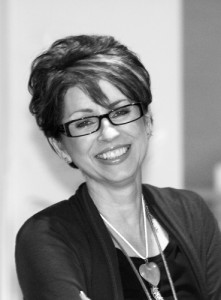 1. Who are the short fiction authors you admire (Australian or otherwise, alive or dead)?
1. Who are the short fiction authors you admire (Australian or otherwise, alive or dead)?
My favourite short fiction authors include Raymond Carver, Doris Lessing and anything, short or long, by Cate Kennedy.
2. What is the most memorable short story you have read? And why does it stand out for you?
One? If forced to choose, it would have to be Raymond Carver’s ‘Little things’ for its brevity, the way the sparse dialogue takes us into a feuding couple’s world and the chilling consequence at the end.
3. What do you like about the short story form?
I love the challenge of the economy of words. To be able to give the reader everything they need in a contained writing space. I enjoy the process of deciding which particular thread of a story I’m going to follow.
4. How would you describe your own writing?
I’m a writer of extremes – comedic or sad. In the end of the day it’s probably the same thing.
5. Which of your stories are you most fond of right at this moment and why?
I love the process of writing so what I’m working on or have just finished always gives me a burst of energy. At the moment, my favourite is ‘Things we don’t talk about’ a story about my relationship with my late mother. It took nine years to be able to write it. The story has elicited a strong response from readers, which has been affirming.
6. Where do the ideas for your stories come from? (Take us through an example)
The seed is in my everyday experience or that of others. It can be a remark or an event that sparks a string of story questions. For example, recently someone described quirky behaviour in a relative with Alzheimer’s disease. I took that one notion, did a bit of reading on the illness and started to ask myself: What would happen if? It grew from there and is the story I’m working on currently.
7. What is your writing process – from idea to publication? (Do you go it alone or are others involved?)
I’m not a huge planner. As soon as I get the idea I start to write. It might just be opening a document and jotting a few notes. I add to it whenever something else comes to mind. I let idea marinate for whatever time it needs—days or in one case, years. A lot of subconscious material permeates my stories. I often find themes emerge that I’m not choosing deliberately. I will begin to notice things as I go about the day and realize that these can be connected with what I’m writing about. I believe ‘we see what we are looking for’ so there’s a part of me always collecting data. At some point, the last line of the story comes to me. Once that happens, I start to write in earnest, heading toward that ‘last line’ goal. The story’s direction towards it develops as I write. I don’t limit myself to a word count. I get it down then cut it back.
It takes about two months to get it to the stage where I’m reasonably happy with it. I always read it out loud, often hate it and go back to refining. I share the story with a select group of people whose opinions I value and take on their feedback. I used to think the process of refining the work was what I most disliked about writing; turns out I was wrong. When I’ve finished, I sit on it for a while then come back with fresh eyes for one more tweak. If decide to submit it, I decide where and off it goes. Inevitably, I then experience a wave of ‘It’s not good enough!’ I think that’s common to most writers.
8. Do you feel the short story form is valued in Australia? What makes you say this?
There seems to be a revival. I know people who like to read short stories because they are time poor and feel that a novel is all much to get through. I personally enjoy short story anthologies for the mix of writing styles.
9. How do you feel about your work being published in non-print forms such as digital and audio?
I like the feel of the book in my hands but not everyone is the same. As long as good stories are getting out there, I’m happy.
10. What advice would you like to offer Spineless Wonders?
Don’t stop. Nothing you write is ever wasted. Persist. There is talent to be nurtured and developed.
Lucia Nardo was born in Melbourne. She holds a Diploma in Professional Writing and Editing from Victoria University; a Master of Business (RMIT) and a Bachelor of Social Work (University of Melbourne). Her short stories and poetry have been published in Offset, Platform and Seed Magazines and online. She is also the author of three non-fiction titles and teaches at VU. Three of Lucia’s scripts were awarded commendations and high commendation in the 2009 FAW National Literary Awards and her stories have received commendations and high commendations in the Ada Cambridge Short Story Prize for the past four years. In 2011, her story ‘Things we don’t talk about’ was the joint winner. Lucia’s website and blog can be found at http://www.lucianardo.com or Twitter @LuciaNardo
